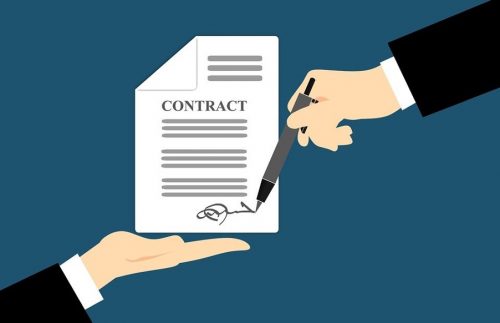
You need to be aware of several legal forms and letters as an entrepreneur. If you’re not familiar with these documents, it could cost you time and money.
This blog post will discuss five legal forms and letters that every business owner should know about. For more information and easy to access template visit FormDepot.
1. Cease and desist letter
This is a letter sent to an individual or business believed to be infringing on your intellectual property rights. The letter demands that the recipient stop the infringing activity immediately.
The contents of a cease and desist letter will vary depending on the situation, but it should always include:
- A description of the infringing activity
- The date that you first became aware of the infringement
- A demand that the recipient stop the infringing activity immediately
- A threat of legal action if the recipient does not comply with your demands
Reasons for issuing a Cease and desist letter
- To stop an infringing activity from continuing.
- To preserve evidence of the infringement in case you need to take legal action.
- To deter the recipient from engaging in future infringing activities.
Additionally, the cease and desist letter should always be sent via certified mail so that you have proof that it was received.
2. Bill of Sale
A bill of sale is a term used to refer to a legal document that transfers ownership of an asset from one party to another. Typically, a bill of sale is used when selling large pieces of property, such as vehicles or real estate.
The bill of sale should always include:
- The date of the sale
- The names and contact information of the buyer and seller
- A description of the item being sold
- The purchase price of the item
- Signatures from both the buyer and seller
Situations when a Bill of sale is sent?
- When selling a vehicle
- When selling large pieces of property, such as real estate or equipment
- When selling a business
If you are selling a valuable item, it’s always best to have a bill of sale to protect yourself in case there are any issues with the transaction down the road.
3. Eviction Notice
An eviction notice is a legal document served to a tenant by their landlord. The notice indicates that the tenant has violated their lease somehow and must remedy the situation within a certain period, or they will be forcibly removed from the property.
Eviction notices can be for some reasons, but the most common are:
- Non-payment of rent
- Violation of the terms of the lease
- Damage to the property
- Engaging in illegal activity on the premises
An eviction notice must contain
- The date of the notice
- The name of the tenant
- The address of the property
- A description of the lease violation
- The duration the tenant has to remedy the situation
- A threat of legal action if the tenant does not comply
If you are a landlord, it’s important to familiarize yourself with your state’s laws regarding evictions so that you can properly serve your tenants with an eviction notice.
4. Contract Termination Letter
A contract termination letter is a document used to cancel a contract between two parties. The letter should include the date of the contract, the names of the parties involved, and a statement that indicates that the contract is being terminated.
The reason for terminating the contract should also be included in the letter.
Common reasons for terminating a contract
- One party fails to uphold their end of the agreement
- Violation The terms of the contract
- One party no longer wishes to be bound by the terms of the contract
- The purpose of the contract has been fulfilled
If you need to terminate a contract for any reason, it’s essential to do so in writing to document your decision.
The contents of a contract termination letter will vary depending on the situation, but it should always include:
- The date of the contract
- The names of the parties involved
- A statement that indicates that the contract is being terminated
- The reason for terminating the contract
- The signatures from both parties involved in the contract.
5. Promissory Note
A promissory note is a legal document outlining a loan’s terms between two parties. The note should include the amount of money being borrowed, the interest rate, the date of repayment, and the signatures of both parties.
Promissory notes are used for personal loans, but they can also be used for business loans. If you are considering borrowing money from someone, it’s crucial to have a promissory note in place so that both parties understand the loan terms.
Contents of a promissory note:
- The amount of money being borrowed
- The interest rate
- The date of repayment
- Signatures from both the borrower and the lender.
Situations in which a Promissory note is used
- When one party loans another party money
- When one party borrows money from a bank or financial institution
- When one party agrees to pay another party for goods or services.
There you have it. Five different types of legal documents that you should be familiar with. Knowing when to issue each one can save you a lot of headaches down the road. Ensure that you consult with an attorney if you have any questions about these documents or their use.
Interesting Related Article: “The Complexities of Legal Translation“

